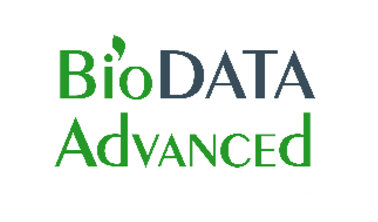Venue: The Iziko South African Museums, Cape Town, South Africa
Date: 13 - 17 November
Deadline for Submissions: 5 September 2023
BioDATA Advanced is an international project between Norway and South Africa that aims to support students in upper education in developing skills in biodiversity data management and publishing, in addition to the most modern molecular methods for monitoring biodiversity. The skills taught within BioDATA Advanced are important for carrying out the everyday tasks of a modern biologist, though many of these skills are not taught in higher education. This project also looks to strengthen the partnership between the South African Node of the Global Biodiversity Information Facility (SANBI-GBIF) and the other BioDATA partners, through exchanges and enhanced collaborations on scientific projects of mutual interest. This course will teach you how to use DNA barcodes, and collection and observation data to resolve research questions in biodiversity. The program uses a combination of lectures, tutorials, and hands-on exercises. You will learn to handle biodiversity data including DNA barcoding. You will gain practical experience in using open and digitally documented biodiversity data through GBIF and BOLD to answer biodiversity research questions. You will understand and practice capturing observation, collection, and genetic data from analog and digital sources. Finally, this course provides basic skills in data publishing through GBIF and BOLD.
Updated online information about the course is available here:
Scope
Data management skills for accessing and publishing data through biodiversity data platforms. This is an observation/specimen - published record course that does not include wet lab steps.
Audience
The course is suitable for MSc and PhD students in biology and other professionals in relevant fields. We plan to select 12 students from applicants for this course, 2 of which will be the successful applicants from the BioDATA Advanced internship exchange project.
For more information click here
Prerequisites
Participants should have an affinity or professional interest in biodiversity. Participants need to have the motivation and interest to handle DNA barcodes, museum collection data, and observation data. A good understanding of English is necessary to follow the course, carry out the exercises, and receive support during the teaching.
Intended learning outcomes
- Understand and be able to explain the concept of species delimitation. -Learn to use genetic sequence data as a DNA barcode to identify a species.
- Learn to publish and retrieve data from GBIF and BOLD.
- Learn the basics of data capture, cleaning, storage, geo-referencing, and citation.
- Critically assess the quality of own and external data and their fitness for purpose.
- Practice the key tools and approaches to maximize data quality, data linking, and data reuse.
- Explore the benefits of FAIR and open data principles in biodiversity research and collaboration.
- Understand the value of data management as a research-enabling tool.
- Broadly understand the importance of international biodiversity infrastructures, and how these can contribute to biodiversity assessments, monitoring, conservation, and red-listing.
Join the iNaturalist bioblitz project
You may like to start observing Bombus, Vicia, and Crocus around you using the iNaturalist app You can also upload photo observations from your desktop. Observations from anywhere in Cape Town can be added until the end of the course. There will be three prizes: for the most observations made, for the highest number of species observed, and for the highest number of identifications made.
Recommended preparation
The course will include a practical part where you will design a research project and its data elements. This project and its “data journey” will be on a plant-pollinator system. To prepare for this part, please read the following. Skip if you are working on pollinators yourself already.
Honey detective work raises fears for bees
Loss of bees causes a shortage of key food crops, study finds
Crocus: Early Spring Forage For Bees
7 Of The Best Crocuses For Honey Bees, Bumble And Solitary Bees
You can also contact Rukaya Johaadien rukayasj@uio.no, Fatima Parker-Allie F.Parker@sanbi.org.za and Morne Du Plessis DuPlessisMG@ufs.ac.za with any questions.
How to apply
NOTE: Flights, accommodation in Cape Town and meals will be covered for successful applicants.
Application deadline: 5 September 2023
Applicants should fill out this form in order to apply for the course:
